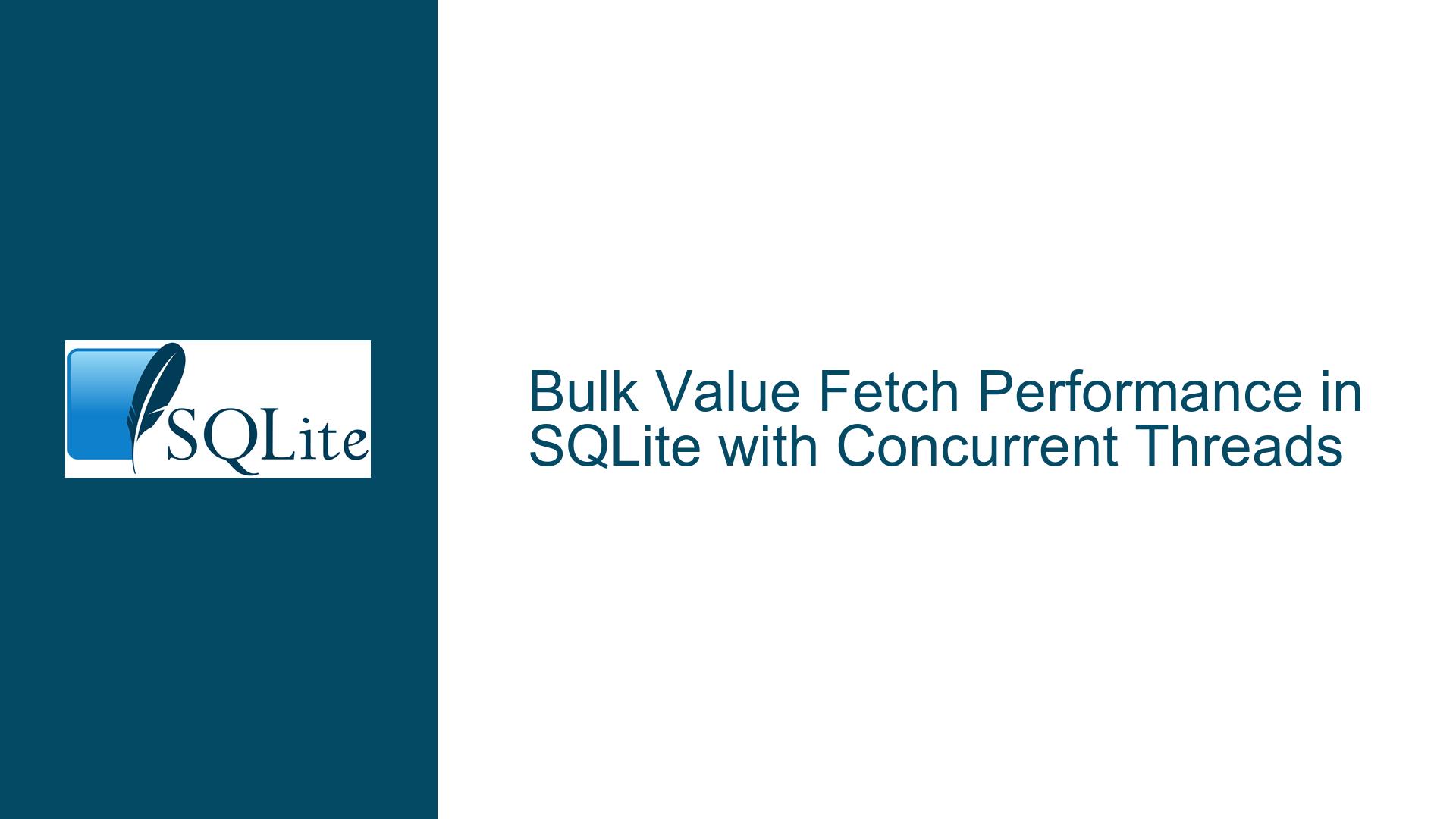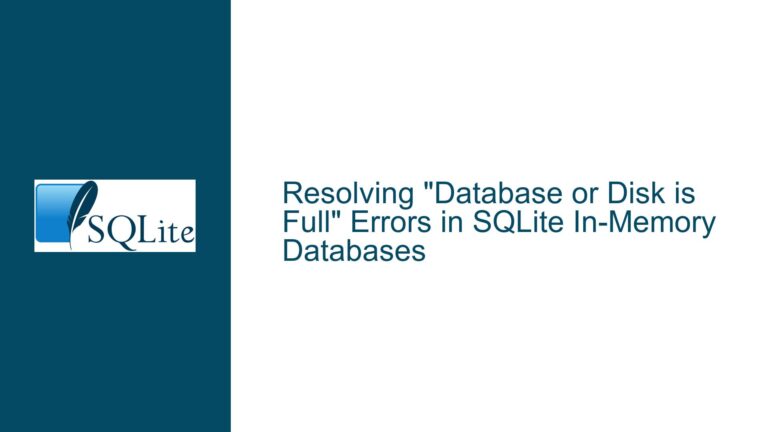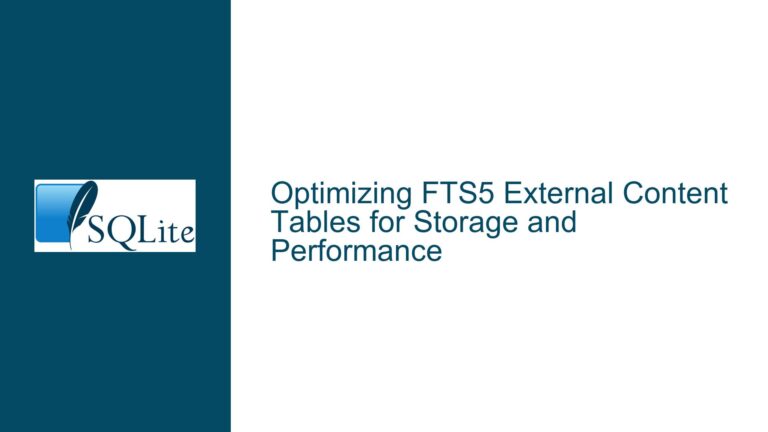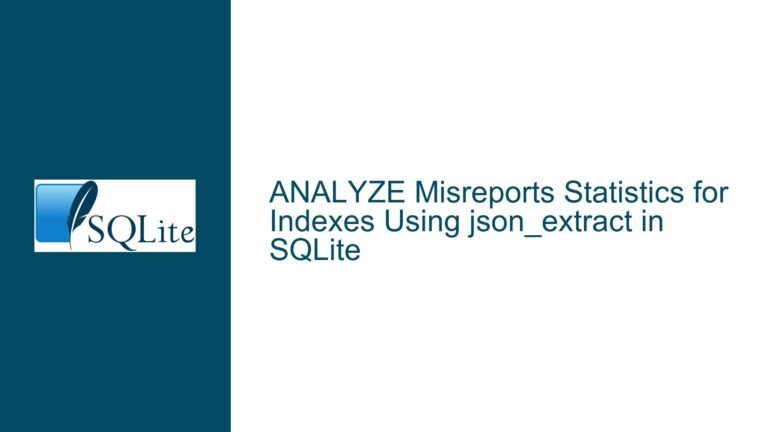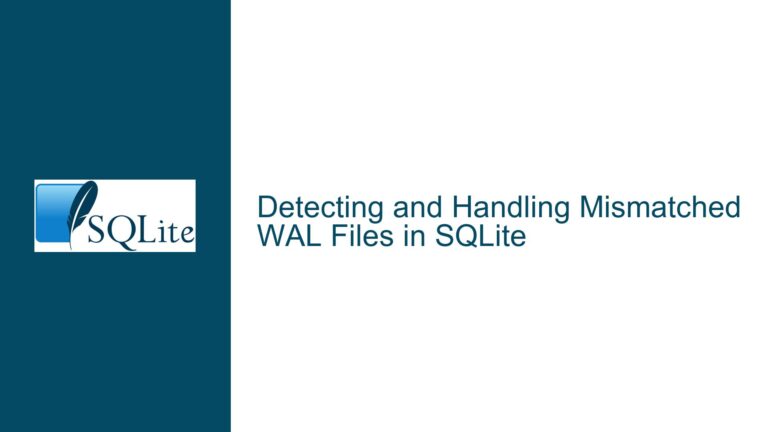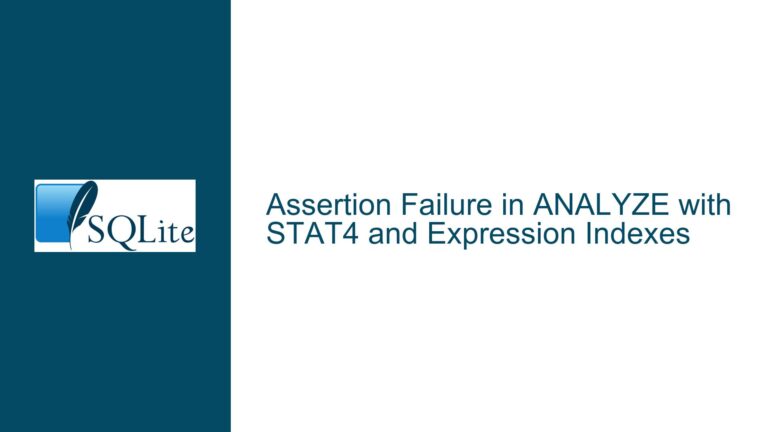Bulk Value Fetch Performance in SQLite with Concurrent Threads
SQLite Connection Mutex Contention in High-Concurrency Workflows
In high-concurrency workflows where multiple threads are performing read and write operations on an SQLite database, connection mutex contention can become a significant bottleneck. This issue arises when dozens of threads are continuously fetching multiple values from rows using a shared read-only connection. Each call to sqlite3_column_* results in a lock on the database connection mutex, leading to a backlog of operations waiting for the mutex to be released. This contention is exacerbated when some threads fetch a large number of values per row, causing other threads to wait longer for their turn to access the mutex.
The core of the problem lies in the granularity of the locking mechanism. In SQLite, each call to sqlite3_column_* requires a lock on the connection mutex, which is released immediately after the value is fetched. When multiple threads are fetching values from different rows or tables, the frequent locking and unlocking of the mutex can lead to significant performance degradation. This is particularly problematic in scenarios where some threads fetch a large number of values per row, as they hold the mutex for a longer duration, causing other threads to wait.
The issue is further complicated by the use of shared connections. In many high-concurrency applications, it is common to use a single read-only connection shared among multiple threads to reduce memory overhead. However, this approach can lead to increased contention for the connection mutex, especially when the number of threads is high. Each thread must wait for its turn to access the mutex, leading to a backlog of operations and reduced overall throughput.
Unprotected SQLite3 Value Objects and Thread Safety Concerns
One of the primary concerns with the proposed bulk value fetch mechanism is the handling of sqlite3_value objects. The sqlite3_value objects returned by the sqlite3_column_* functions are considered "unprotected" and have limited usage in other SQLite APIs. These objects are managed by the prepared statement and can change form under the covers, particularly when type conversions occur. This means that the values returned by sqlite3_column_* are not thread-safe and can be invalidated by subsequent operations on the same prepared statement.
The proposed sqlite3_bulk_values function fetches multiple column values under a single lock of the connection mutex, but it returns unprotected sqlite3_value objects. These objects are only valid until the next call to sqlite3_step or sqlite3_reset on the same prepared statement. If multiple threads are accessing these values concurrently, there is a risk that the values could be invalidated by operations in other threads, leading to undefined behavior.
Furthermore, the lifetime of the sqlite3_value objects is tied to the prepared statement. If the prepared statement is reset or finalized while the values are still in use, the memory associated with those values could be freed, leading to crashes or data corruption. This is particularly problematic in multi-threaded environments where the timing of operations is unpredictable.
To mitigate these risks, it is essential to make copies of the values at the lowest level, ensuring that each thread has its own independent copy of the data. This can be achieved by using functions like sqlite3_value_dup to create a duplicate of the sqlite3_value object, which can then be safely used by the thread without fear of invalidation.
Implementing Bulk Value Fetch with Thread-Safe Value Copies
To address the issues of mutex contention and thread safety, a revised approach to bulk value fetching can be implemented. This approach involves fetching multiple column values under a single lock of the connection mutex and making thread-safe copies of the values before releasing the mutex. This ensures that each thread has its own independent copy of the data, eliminating the risk of invalidation and reducing contention for the connection mutex.
The revised sqlite3_bulk_values function would first lock the connection mutex, fetch the required column values, and then create duplicates of the sqlite3_value objects using sqlite3_value_dup. These duplicates would be stored in a thread-safe structure and returned to the caller. The connection mutex would then be released, allowing other threads to proceed with their operations.
Here is an example implementation of the revised sqlite3_bulk_values function:
SQLITE_API void sqlite3_bulk_values(sqlite3_stmt *pStmt, sqlite3_value_lookup *columnData, int columnCount) {
Vdbe *pVm;
Mem *pOut;
int itr;
int i;
pVm = (Vdbe *)pStmt;
assert(pVm);
assert(pVm->db);
sqlite3_mutex_enter(pVm->db->mutex);
for (itr = 0; itr < columnCount; ++itr) {
i = columnData[itr].column_index;
if (pVm->pResultSet != 0 && i < pVm->nResColumn && i >= 0) {
pOut = &pVm->pResultSet[i];
} else {
sqlite3Error(pVm->db, SQLITE_RANGE);
pOut = (Mem *)columnNullValue();
}
if (pOut->flags & MEM_Static) {
pOut->flags &= ~MEM_Static;
pOut->flags |= MEM_Ephem;
}
columnData[itr].value = sqlite3_value_dup((sqlite3_value *)pOut);
}
sqlite3_mutex_leave(pVm->db->mutex);
}
In this implementation, the sqlite3_value_dup function is used to create a duplicate of the sqlite3_value object, ensuring that the returned value is thread-safe and independent of the prepared statement. This approach eliminates the risk of invalidation and allows multiple threads to safely access the fetched values without contention for the connection mutex.
Additionally, the use of SQLITE_OPEN_NOMUTEX can be considered to further reduce mutex contention. This flag allows multiple threads to access the database connection without acquiring a mutex, provided that each thread uses its own connection. However, this approach may not be feasible in scenarios where the number of threads is very high, as each connection requires its own chunk of memory for state and cache.
In conclusion, the proposed bulk value fetch mechanism can be made thread-safe by ensuring that each thread has its own independent copy of the fetched values. This approach reduces contention for the connection mutex and eliminates the risk of value invalidation, leading to improved performance in high-concurrency workflows.
